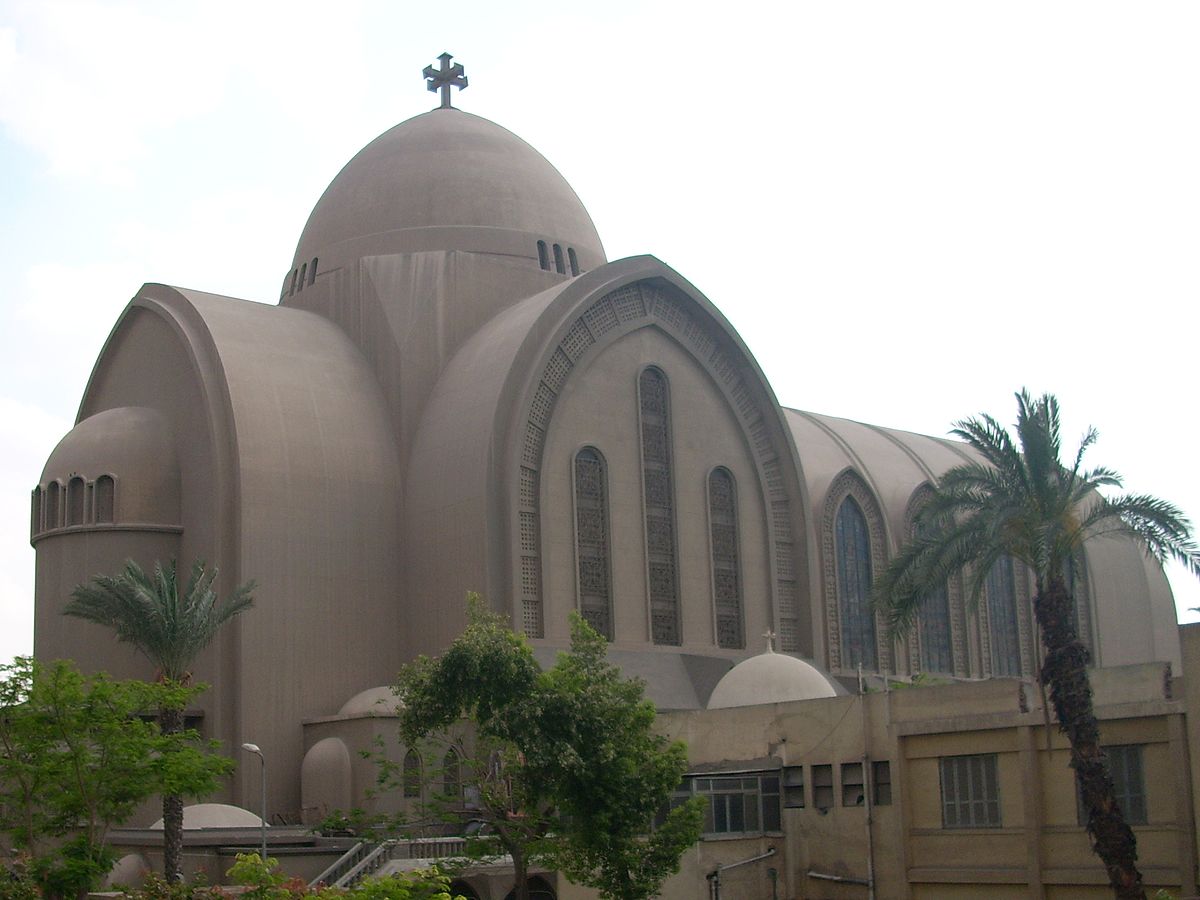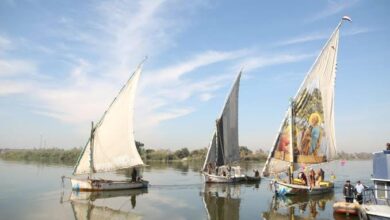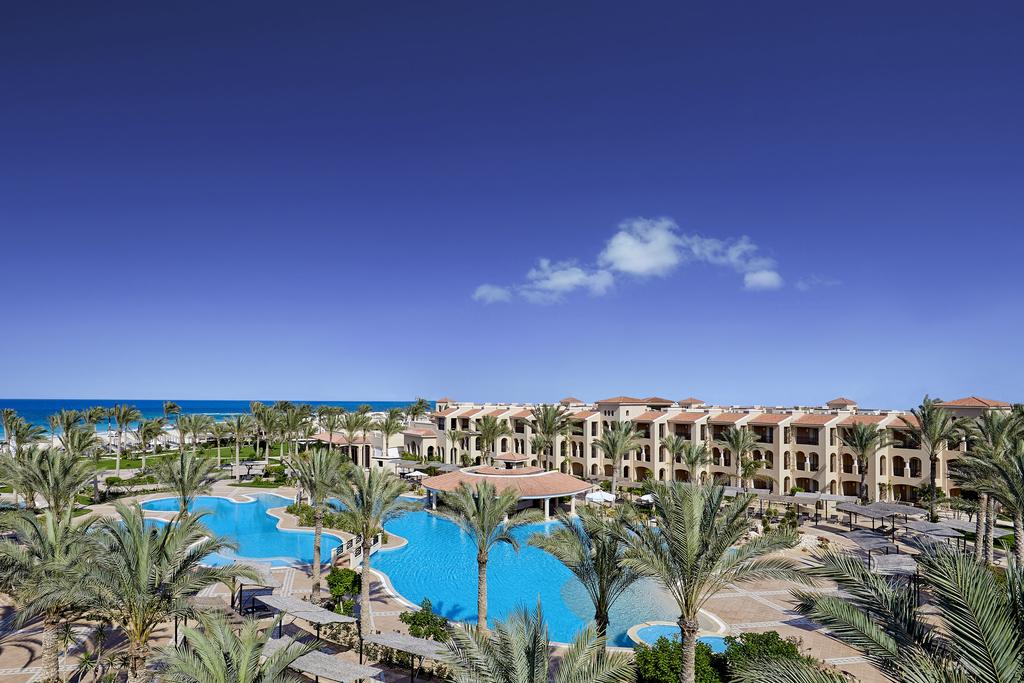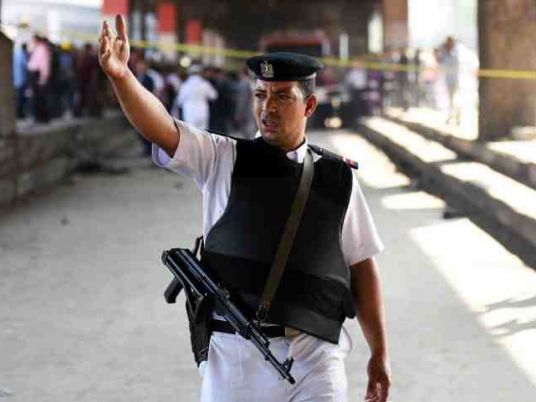The top developments in Monday’s papers include the vote for the three finalists in the Coptic papal lottery, which will determine Pope Shenouda III’s successor; a massive oil spill in the Upper Egypt Nile waters that has affected three governorates; follow-ups regarding the “terrorist cell” in Nasr City; and news of a large fire that destroyed the renowned Libya Market in Marsa Matrouh.
The Coptic Orthodox Church will begin Monday the election of its 118th patriarch for the three finalists, narrowed down from five candidates, today in St. Mark’s Coptic Orthodox Cathedral in Abbasseya, according to party paper Al-Wafd. More than 2,400 eligible Coptic voters will vote. The article mentions that the “Interior Ministry will externally secure the cathedral.”
Independent paper Al-Shorouk says elections are scheduled to be held from 9 am to 5 pm at the cathedral. Ballot counting is due to take place immediately after the boxes are closed at 5 pm. The paper adds that, other than the voters, the cathedral will host some 300 church youth group members to assist voters and visitors, while journalists have been invited to cover the elections.
Shenouda died on 17 March following serious health complications. Although the country’s Coptic population is reportedly about 10 percent of Egypt’s 91 million citizens, only a small percentage of Copts are able to participate in these elite elections. But none of the newspapers mention what the criteria are for these special voters, or how they are chosen from among millions of other Copts.
Following today’s vote, an altar lottery is scheduled to be held 4 November in which a child is “randomly” selected from the cathedral congregation to choose the winning candidate by handpicking the name of one of the three finalists.
Nearly every daily paper publishes headlines, features and articles pertaining to the “Nasr City terrorist cell,” which came to light following a gun battle on 25 October in this eastern Cairo district. Five suspects were arrested after the armed confrontation, and the building housing the cell exploded and caught on fire.
One of these terror suspects, who was killed in the firefight, is reportedly a Libyan Islamist militant named Karim Ahmed Essam al-Azizy. Azizy is reportedly linked to the deadly armed attack on the US Consulate in Benghazi on 11 September.
Al-Wafd runs a headline reading, “US security team to arrive in Cairo for follow-up of investigations of Nasr City terror cell.” This article mentions that the US administration will send security specialists to Cairo “within hours” to follow these investigations in light of the consulate attack. The paper also claims that the Nasr City terror cell was planning to attack the US Embassy in Cairo during the Eid al-Adha holiday.
Al-Wafd claims that Azizy, codenamed “Nabil,” was involved in an armed Islamist group known as Jihad, while he is also accused of being in contact with a Libyan group called New Jihad, which allegedly smuggled machine guns, artillery and explosives into Egypt via the Libyan border in a funeral service car.
Al-Wafd also mentions that among those in police custody in light of this case are two officers — whose names are not specified — who had been fired because of their radical Islamist tendencies.
“Developments in Nasr City terror cell case: Terrorists label Egyptian leader as infidel … reject concept of democracy,” state-owned newspaper Al-Gomhurriya reports. This article says this “terror cell” dubbed President Mohamed Morsy as an infidel who was selected through democratic means — a political system not recognized by the “terrorists.”
Al-Gomhurriya also mentions that two of the arrested suspects were former state security officers who had been removed from service in 2003.
This article also mentions that eight suspects were arrested following the firefight on 25 October, including one Tunisian citizen, who is reported to be a “bomb maker and explosives specialist.”
Independent Al-Watan writes that “Security forces determine identities of 50 suspects planning attacks and use of explosives, along with president’s assassination.” The paper claims that 50 terror suspects out of about 200 have been identified and are being tracked down. This article also claims that four terror cells — not just one —were involved in planning and organizing terror operations, which led to the Nasr City gunfight.
Newspapers also report on a massive oil slick in the Nile threatening drinking water in Aswan, Luxor and Qena governorates. Independent newspaper Al-Sabah says there is an ongoing struggle and finger-pointing competition between the Irrigation and Water Resources Ministry and Aswan Governorate regarding responsibility for the oil slick.
Al-Gomhurriya, meanwhile, runs a headline asking, “Who should we trust? Irrigation minister claims the slick has been contained. Aswan governor claims spill has flowed northward to the town of Esna.”
Papers differ over the size of the oil spill. Al-Sabah says it covers 1 square kilometer and has led to closures of several drinking water purification plants nearby, while Al-Shorouk says the spill measures about 5 square kilometers and has led to the closures of three plants.
Authorities have not determined the oil spill source, but legal charges have been filed with the public prosecution. Al-Shorouk notes that the industrial site closest to the spill is Edfu Sugar Company, about 30 kilometers away.
Lastly, a massive fire destroyed most of the large Libya Market in the Mediterranean town of Marsa Matrouh in northwest Egypt Sunday.
This historic landmark was 90 percent gutted by the flames, according to Al-Sabah, which also mentions that “13 fire engines failed to put out the fire.” This paper says the Libyan Market consisted of some 500 shops.
Papers differ over how many shops burned down and what caused the fire. Losses are reported at more than LE10 million. None of the papers mention any deaths.
The market contains many consumer goods — primarily clothes, textiles, soaps, perfumes, and electric and household appliances — brought to the country from Libya.
Egypt’s papers:
Al-Ahram: Daily, state-run, largest distribution in Egypt
Al-Akhbar: Daily, state-run, second to Al-Ahram in institutional size
Al-Gomhurriya: Daily, state-run
Rose al-Youssef: Daily, state-run
Al-Dostour: Daily, privately owned
Al-Shorouk: Daily, privately owned
Al-Watan: Daily, privately owned
Al-Wafd: Daily, published by the liberal Wafd Party
Youm7: Daily, privately owned
Al-Tahrir: Daily, privately owned
Al-Sabah: Daily, privately owned
Freedom and Justice: Daily, published by the Muslim Brotherhood's Freedom and Justice Party
Sawt al-Umma: Weekly, privately owned
Al-Arabi: Weekly, published by the Nasserist Party
Al-Nour: Official paper of the Salafi Nour Party




